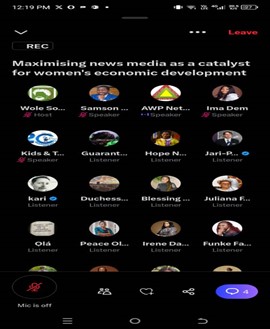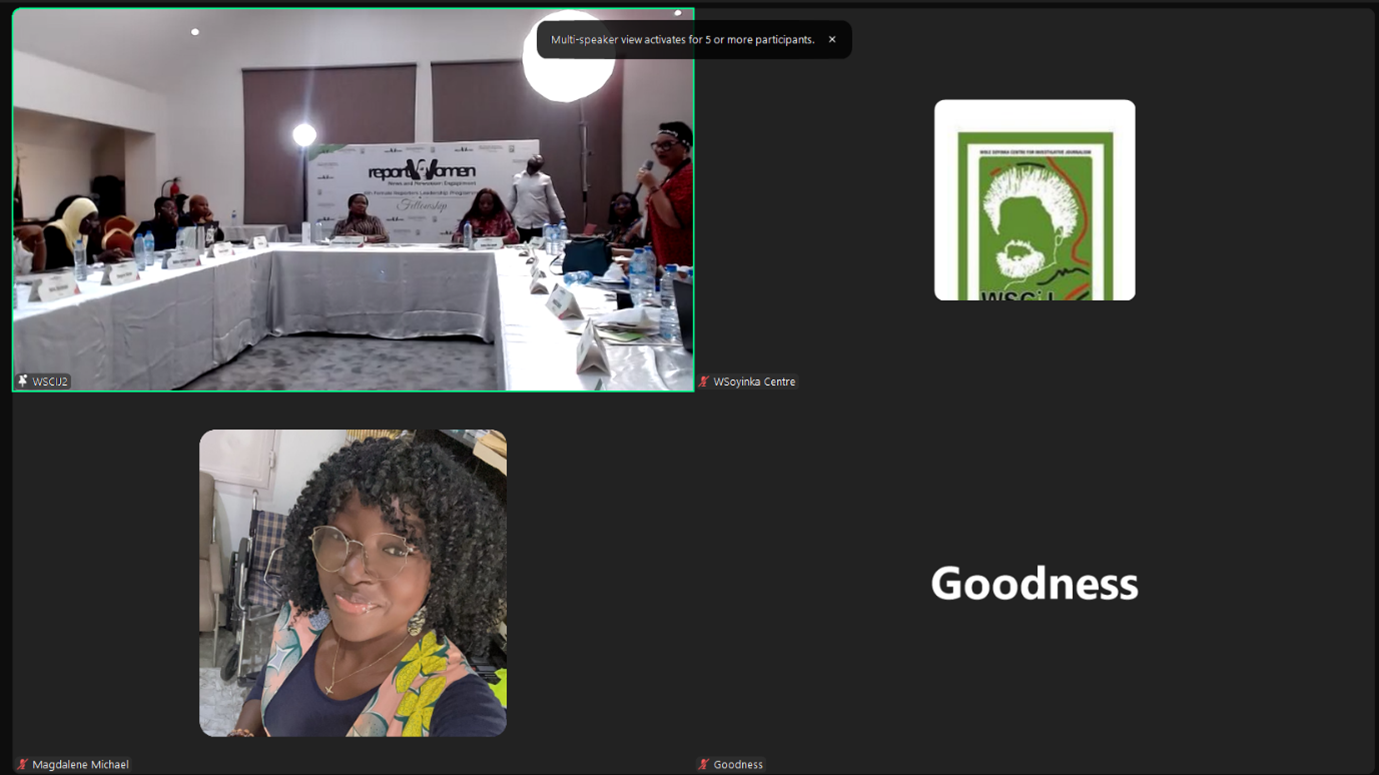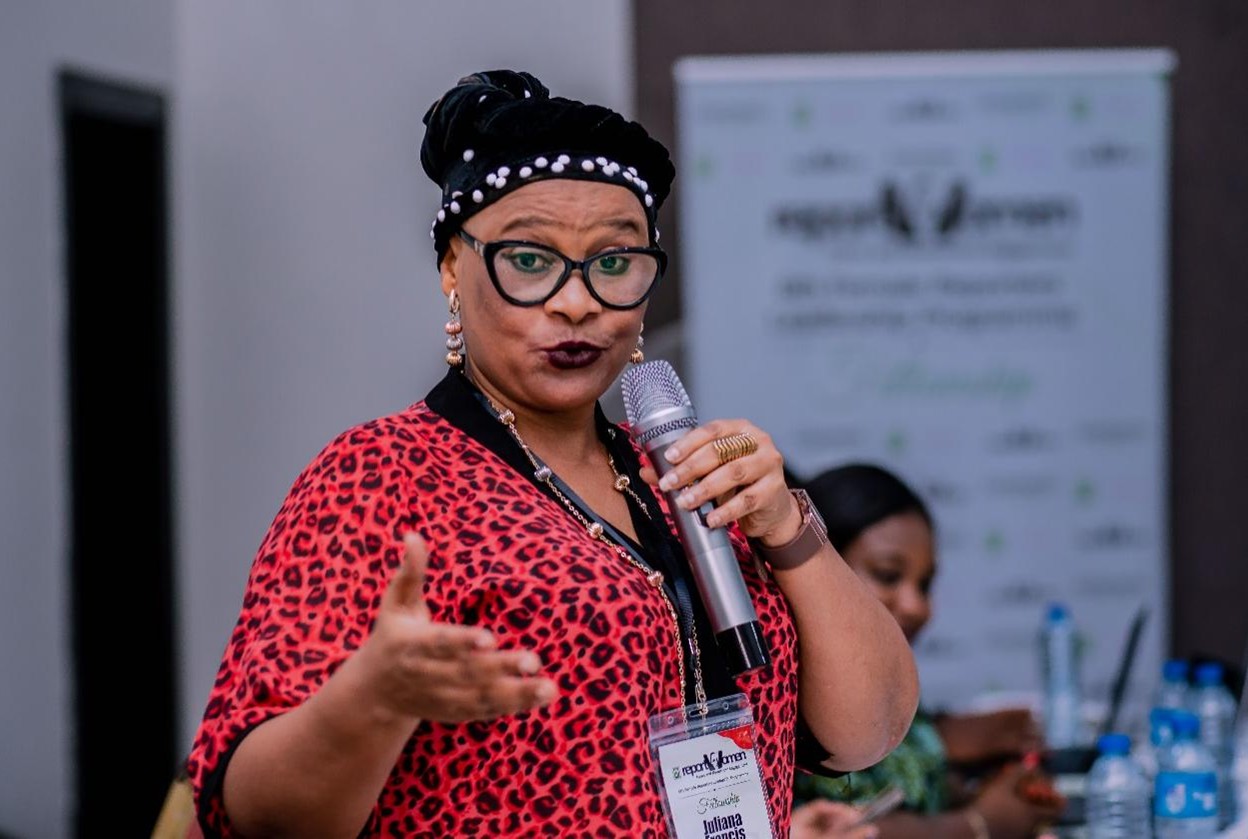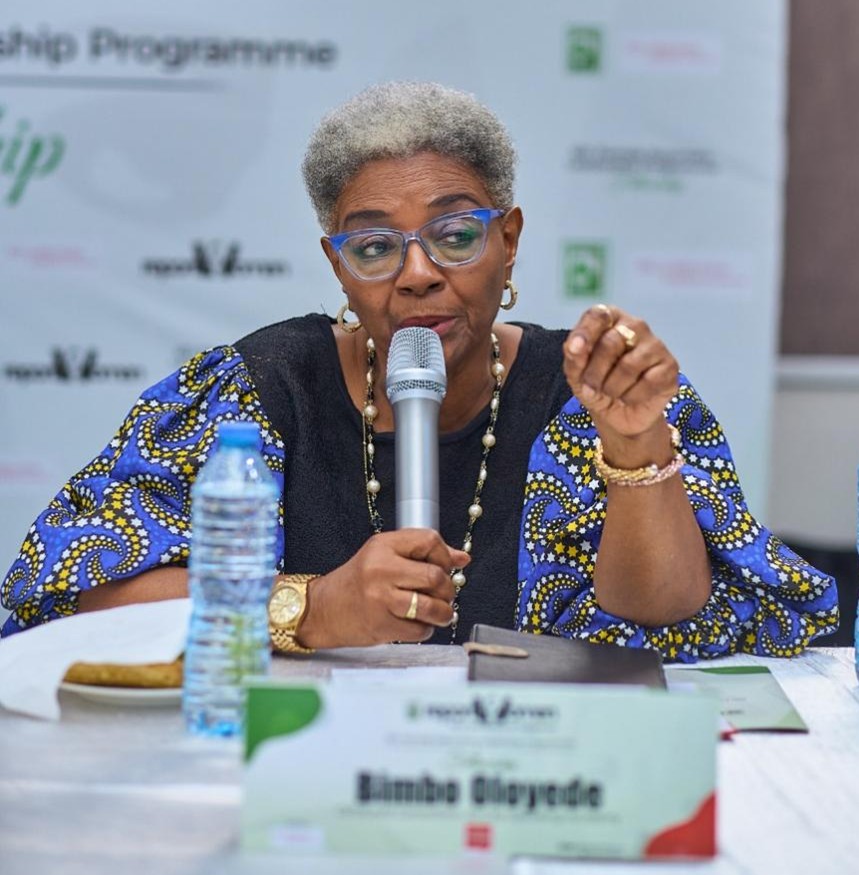The need for the news media to feature new voices, showcase role models, provide equal opportunities for women in rural and urban areas to share their stories, and actively support women in reaching their goals was the focus of the 2 April WSCIJ Journalism and Society Conversations themed, ‘Maximising the news media as a catalyst for women’s economic development’. At the event moderated by Imaobong Dem, Head of News, Inspiration FM, Panellists Mary Olushoga, Founder, the African Women Power Network; Bassey Udo, Team Lead, Mediatracnet Nigeria; Martin-Mary Falana, Executive Director, Kids & Teens Resource Centre discussed pressing concerns of rights and access of women to economic opportunities with the media as the catalyst for these developments.
Olushoga noted the importance of women sharing their stories to help the audience understand their challenges. Since storytelling is essential to development and economic empowerment, the media must assist the many women whose experiences remain untold in gaining the confidence they need. She suggested working with media outlets and non-governmental organisations (NGOs) to raise the voices of women. During the conversation about women’s economic contributions and obstacles, she brought up cultural factors as major impediments to women’s economic empowerment. Olushoga asked the media to take full advantage of social media platforms to share the experiences and accomplishments of these smaller-scale businesswomen.
During his presentation, Falana spoke about the work his organisation, Kids & Teens Resource Centre, does for women in rural communities. He discussed the importance of promoting knowledge of economic empowerment among youth and the public, as well as the media’s critical role in moulding opinions and policies on gender equality and inclusivity. Falana highlighted the adoption of role models to inspire others and the impact of conscious framing to shape perceptions. Falana stated that despite limited access to the media, more women are pursuing economic opportunities in rural places. He added that women in metropolitan communities with access to the internet, wealth, and other variables are more privileged than women in rural communities, hence the media should pay more attention to these women in the hinterland.
Acknowledging the importance of the media in showcasing women’s significant economic achievements, Udo emphasised the crucial role of the news media in amplifying the achievements of women. The Mediatracnet Nigeria Team Lead reiterated the importance of accurately portraying women, facilitating their goal achievement, and enhancing their access to financial opportunities for economic development.
Lekan Otufodunrin, Executive Director of Media Career Development Network, called for news content audit by going beyond familiar faces in the business realm. He advocated that the media must ask germane questions and engage in issues-based conversations with women news sources. The former Managing Editor, Online and Special Publications of The Nation Newspapers urged the news media to report women in business and showcase women in the higher echelons of economic power in Nigeria.
According to Peter Iorter, Executive Director, Safermedia Initiative, the meeting marks the start of an important call for all stakeholders to work together to understand their roles in economic empowerment for women. Although many women utilise social media to share their tales, Iorter emphasised that this does not diminish the value and influence of traditional news media. He urged all parties to collaborate with the media to represent women’s needs for economic development.
In her contribution to the conversation, Irene David-Arinze, founder, LIDA Network, the media is a platform for women to share their stories to gain attention and access funds. WSCIJ Journalism & Society Twitter Spaces was designed as a forum for online discussions about the place of the media in society, nationally and globally, and how journalists and the media perform in this context.








